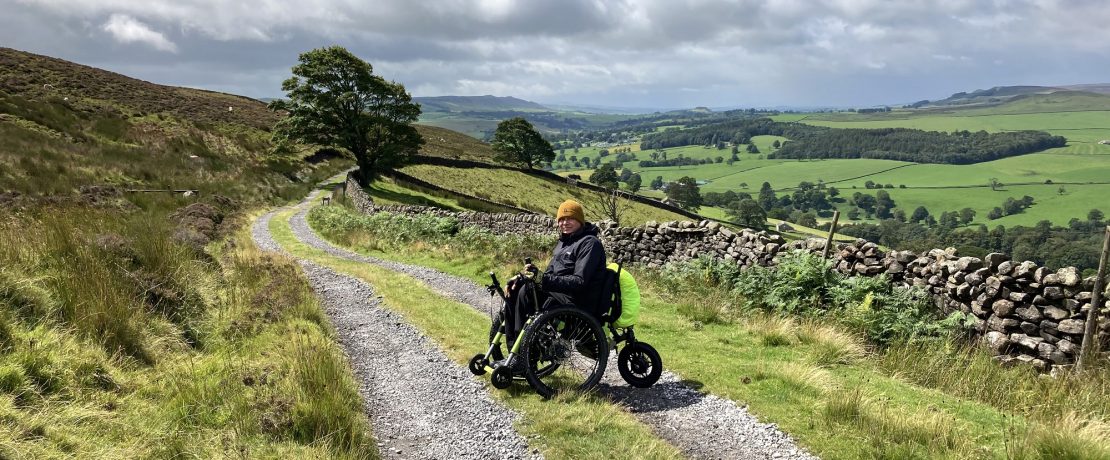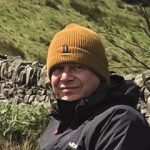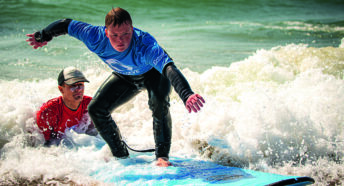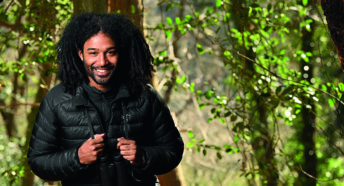Craig Grimes: helping disabled people access all areas of the countryside
Growing up, Craig Grimes loved camping, walking, climbing, kayaking, caving and the outdoor life – then an accident left him paralysed from the chest down. Today, he runs Experience Community, an organisation helping disabled people access countryside adventures.
I studied Geography and Environmental Science at university and was planning to do an MSc in National Park Management. But on 1 May in my final year, I fell from a tree, breaking my back in three places. Instead of sitting my finals, I was in hospital for three months. At just 20 years old, my life had changed completely.
On 1 August I discharged myself from hospital, jumped straight into a friend’s car, and we went youth hostelling in the Netherlands for a fortnight. It was a valuable learning experience, seeking out accessible rooms and discovering the realities of travelling with a wheelchair.
I finished my degree, but I couldn’t do field trips for my thesis – I just couldn’t get to the remote sites I needed to visit. This was the late ’90s, and disabled access to the countryside wasn’t high on most organisations’ agendas. Instead I got a job with the Spinal Injuries Association. My role covered north England and Northern Ireland, so there was lots of travelling. It sparked my interest in travelling more widely – to the Gambia, Israel and spells living in Barcelona and Nicaragua.
At a responsible tourism conference in Canada I tried a piece of kit sitting between two walkers, pulling me up a mountain in the Rockies. It was nerve-wracking and uncomfortable, but enabled me to see incredible places I couldn’t have got to independently. Back in the UK, I started volunteering for Natural England providing advice on wheelchair accessible routes. When that project ended I wanted to do something similar, so I signed up for a business-planning course with a view to making information films about disabled access.
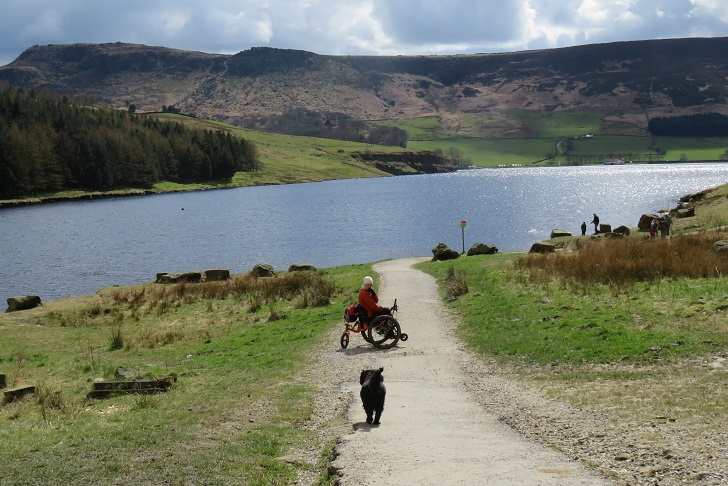
I set up Experience Community in 2011, mostly filming videos for museums and galleries at first – just me on my own in my wheelchair with my camera and tripod. For years it was a struggle, practically and financially. In 2014 I secured three years of funding from Kirklees Council and was contracted by Yorkshire Water to make a film about a new accessible route at Scammonden Reservoir. I also bought a Mountain Trike, an all-terrain, self-propelled wheelchair that I could drive with my arms using levers. Suddenly I could navigate steep slopes, rough tracks and deep mud, all without getting my hands dirty.
For the launch of the Scammonden route, I asked the Mountain Trike company to invite local Trike users along and also to bring some demo kit. That’s where Experience Community really took off. We started running Mountain Trike rambles and seeking funding to buy more kit as well as storage and transport.
Six years on, we have grown into a team of four staff, organising rambles, rides and residential trips for disabled people and their families across the North of England. We have the largest fleet of Mountain Trikes and off-road adapted hand-cycles in the country. We’re still making videos and we also provide consultancy on disabled access for the likes of the Woodland Trust, National Trust, National Trails and Natural England.

The latest Mountain Trike, the electric-assisted eTrike, is a game-changer. Before, the Trikes were slow uphill, but in the eTrike I can do a route that used to take 4.5 hours in just 1.5 hours. My walking companions don’t have to dawdle and get cold any more! We had a woman crying during one of our demos, as she realised she could get back into the countryside. Then there was the 10-year-old with a heart condition zooming around on an electric Trike, beaming, with his parents (and me!) in tears. It’s brilliant to be able to offer that glimmer of hope.
It’s not just about physical barriers but also attitudinal ones. Until now, disabled people have been told which routes are accessible, but we’re flipping that on its head. Disabled people know whether or not they can reach a latch on a gate, or whether a cattle grid will cause problems. Our videos and route descriptions help them make informed decisions.
With funding from the Pennine Way Partnership, Natural England and Yorkshire Water, we’ve developed a route indicator system using colours like ski-run gradings. We assess the surface, gradients of ascents and descents, and any barriers. People’s abilities vary and equipment is constantly evolving, so our ethos is to tell people what’s out there, not what they can or can’t do.
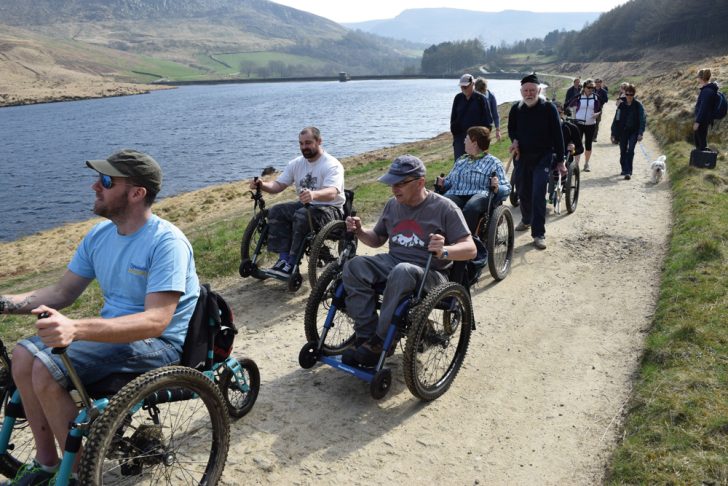
My own favourite places to roam include the Dales, Scar House and Grimwith Reservoirs, Nidderdale and Colne Valley near my home. I love Kielder Forest in Northumberland and the Tarka Trail in Devon. In summer I tend to explore hilly and remote trails, in winter managed sites like RSPB reserves and reservoirs that are more wheelchair-friendly. I think reservoirs play an important role in access to the countryside for disabled people – they can often be made accessible with simple changes, yet some feel really wild.
Last year I married Kate on 1 May, the anniversary of my accident. We wanted to reclaim the date and replace bad memories with happy ones. We’ve just decided to order me my own eTrike we can continue to venture out together into all sorts of landscapes, whatever the weather.
I’ve always had a passion for getting out into the countryside. Now it’s a passion for getting other people out there too. It’s been a long, hard struggle but I’m in a privileged place.
Find out more at experiencecommunity.co.uk.
A version of this article was originally published in CPRE’s award-winning magazine, Countryside Voices. You’ll have Countryside Voices sent to your door three times a year, as well as access to other benefits including discounts on attraction visits and countryside kit from major high street stores when you join as a CPRE member. Join us now.
